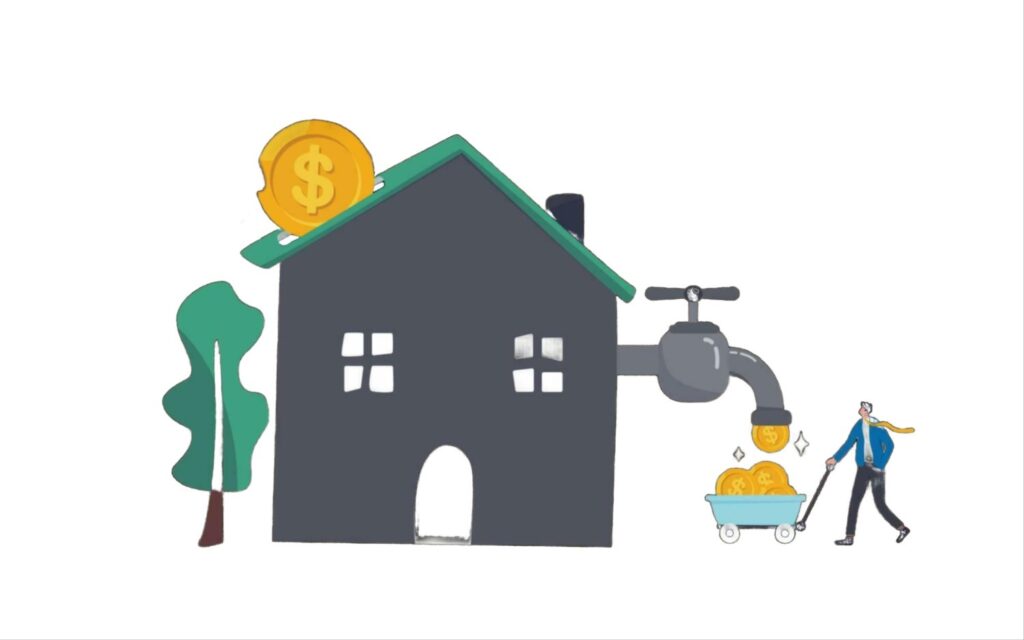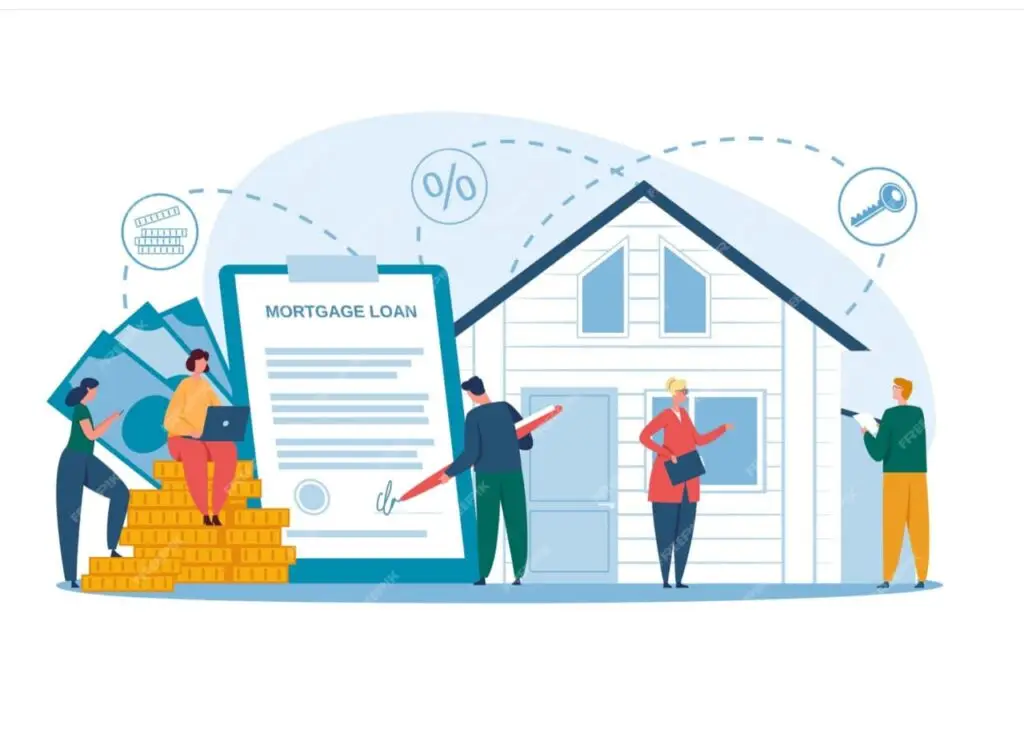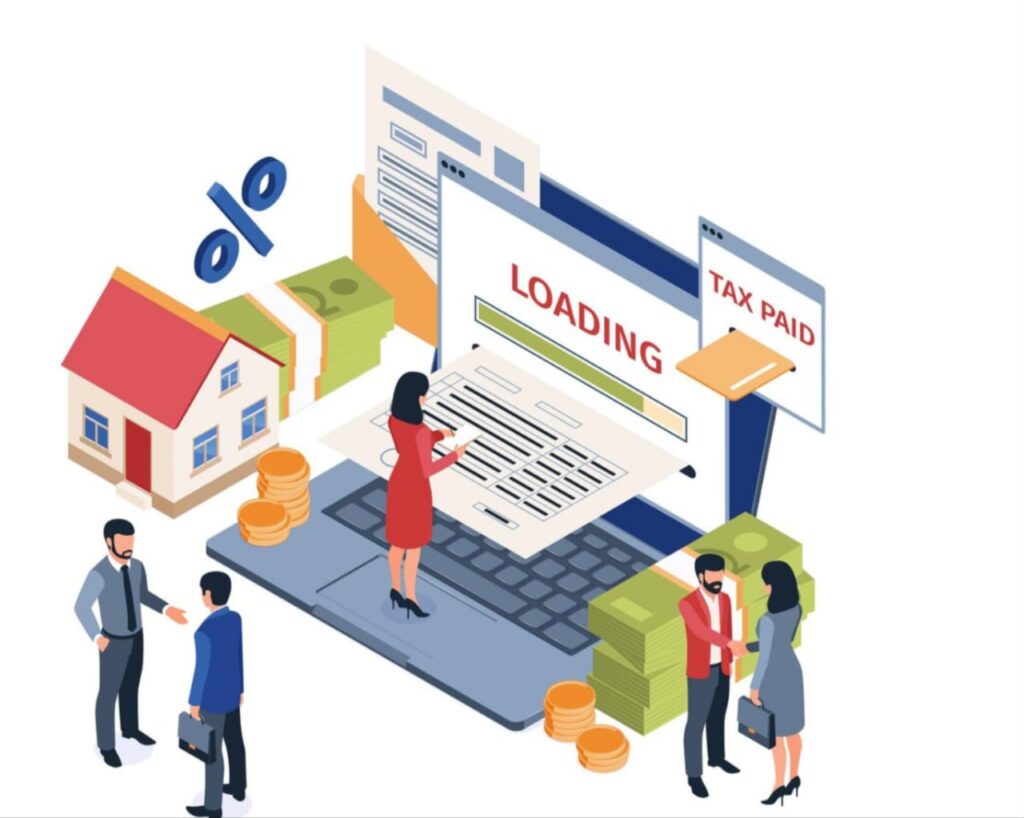Live where you want
Our mission is to make homeownership and property investments easy and reliable. With ‘Live Where You Want’ we help you find your dream space stress-free and fun with lots of options all within your budget and the perfect location.
Why joseforland.com

When buying a house, here are some key points to consider:
- Property Documents: Always ensure the title deed is clear and free from legal disputes. At joseforland.com, we verify property documents directly from sellers to give buyers peace of mind.
- Location and Neighborhood: Evaluate the property’s location for accessibility, safety, and nearby amenities like schools, hospitals, and markets. You can explore detailed property listings on joseforland.com with map features to make location research easier.
- Construction Quality: Inspect the building’s structure and materials used. Look for signs of damage or poor workmanship. Properties listed on joseforland.com include verified details about construction quality to help you make informed decisions.
- Home Loan Eligibility: Ensure the property is approved by major banks or financial institutions if you’re opting for a loan.
- Resale Value: Think long-term about the property’s appreciation potential. Listings on joseforland.com highlight market trends to guide your investment choices.
- Hidden Costs: Stamp duty, registration fees, maintenance charges, and taxes can add up. Calculate these costs upfront—resources on joseforland.com can help simplify this process for you.
Whether you’re buying your first home or looking for investment opportunities, joseforland.com is your trusted partner in finding verified properties, offering transparent processes, and helping you make confident real estate decisions.

Determining the value of a property
Whether it’s a house, open land, or a commercial space depends on several factors:
- Location: A prime location near schools, markets, and public transport increases value. At joseforland.com, you’ll find properties and open lands listed with detailed location insights, saving you time in research.
- Property Size and Type: The area and type of property (house, land, or commercial space) play a big role. Larger properties or lands in desirable areas have higher values. With joseforland.com, comparing property sizes and types is quick and easy.
- Market Trends: Real estate values rise and fall with market demand and supply. Our platform keeps you informed about trends, so you can make timely decisions.
- Amenities and Potential: Whether it’s open land with development potential or a property with modern amenities, these add significant value. Listings on joseforland.com highlight these features for better clarity.
- Condition and Use: For built properties, age and maintenance affect the price. For open land, zoning regulations and future potential are key factors.
- Legal Compliance: Clear documents, approvals, and tax rates impact the final valuation. At joseforland.com, we ensure all properties and lands are verified to save you time and effort.
With joseforland.com, you can explore solutions tailored to your needs—whether you’re buying a home, investing in open land, or looking for commercial spaces. Our platform ensures you save time, stay informed, and make smart decisions.

The current interest rates for home loans
When it comes to securing a home loan, understanding the interest rates is crucial. Here’s how joseforland.com can help you make an informed decision:
- Fixed vs. Floating Rates: Home loan interest rates can either be fixed (remain the same throughout the loan period) or floating (change with market conditions). joseforland.com connects you with banks and financial institutions that offer both types of rates.
- Current Market Rates: Home loan interest rates typically range between 7% and 9% in India, depending on the lender and the applicant’s credit score. On joseforland.com, you can easily explore home loan options with partnered banks, ensuring you get the best rates.
- Eligibility and Discounts: joseforland.com provides access to special offers, discounts, and exclusive deals from partner banks, helping buyers secure the best home loan terms.
- Loan Tenure and EMIs: The loan tenure impacts your monthly payments. With joseforland.com, you can connect with the right financial partners who offer personalized loan plans based on your preferences for tenure and EMI amounts.
- Simplifying the Loan Process: By collaborating with trusted banks and financial institutions, joseforland.com makes it easier for buyers to secure better loan deals with competitive interest rates and faster approvals.
With joseforland.com, we help you access the best loan options, ensuring a smoother and more affordable home-buying experience.

Process of buying a house
Buying a house can feel overwhelming, but with the right guidance, it becomes a smooth and rewarding experience. Here’s how joseforland.com helps you navigate the process step by step:
- Determine Your Budget: The first step in buying a home is figuring out your budget. This involves understanding how much you can afford to spend, including the down payment and monthly mortgage payments. joseforland.com offers a wide range of property listings that cater to various budgets, making it easy for you to explore options within your price range.
- Find a Suitable Property: Once your budget is clear, the next step is to start looking for a property. Whether you’re interested in residential, commercial, or land properties, joseforland.com allows you to browse an extensive collection of properties based on your preferences, such as size, location, and amenities.
- Visit the Property: After short listing a few properties, it’s important to visit them in person. This gives you a feel of the location and property condition. On joseforland.com, you can request property visits and get more detailed insights about the properties you’re interested in.
- Make an Offer: Once you find a property you want, it’s time to make an offer. You can negotiate the price with the seller or agent. joseforland.com provides a platform for seamless communication, making it easier for buyers and sellers to agree on terms.
- Secure Financing: If you’re planning to finance the purchase through a home loan, now is the time to secure a mortgage. We partner with banks and financial institutions to help you find competitive rates and offers.
- Sign the Agreement: Once the price and financing are settled, the final step is to sign the purchase agreement and advance payment agreement. This legally binding contract outlines the terms of the sale, and joseforland.com ensures that all legal aspects are clear before proceeding.
- Registration: After the agreement is signed, the property needs to be registered at the local sub-registrar office. This is an important step to ensure the property is legally transferred to your name.
- Close the Deal: The last step is the closing process, where the payment is made, and the property is officially transferred to you. After the deal is closed, you’ll receive the keys and can move into your new home.
By following these steps and utilizing the services on joseforland.com, buying your next home becomes a straightforward and enjoyable process.

Is a Property is a Good Investment
Investing in property is a significant decision, and ensuring it’s a good investment requires careful evaluation of key factors. Here’s how josephorland.com can guide you in the right direction:
- Location, Location, Location: The property’s location is one of the most critical aspects of its future value. Properties in developing areas or close to essential amenities like schools, hospitals, and transport hubs often offer better returns. josephorland.com provides listings with detailed information about location advantages, helping you make informed decisions.
- Market Trends: Understanding the real estate market trends in your area of interest helps gauge whether a property is likely to appreciate in value. Through josephorland.com, you can access property listings with insights on current market conditions and trends.
- Property Type and Potential: Different property types (residential, commercial, open land) offer varied investment potential. josephorland.com provides a range of property types, helping you choose based on your investment goals, whether you’re looking for long-term capital appreciation or rental income.
- Property Condition: A well-maintained property or land with good development potential is often a better investment. josephorland.com helps buyers understand the condition of properties by providing detailed descriptions and images.
- Return on Investment (ROI): Calculating the potential ROI is essential for understanding how profitable a property can be. josephorland.com connects you with property experts who can help you assess the ROI based on your budget, goals, and the property’s potential for rental income or future sale.
- Legal and Documentation Checks: Ensuring the property has clear legal titles and documents is vital. At josephorland.com, all listings are verified to help you avoid any legal complications in the future.
By considering these factors and leveraging the resources at josephorland.com, you can identify properties with high investment potential and make well-informed decisions that align with your financial goals.

Legal Documents Required to Buy a Property
Buying a property is a significant investment, and ensuring that all legal documents are in order is crucial for a safe and secure transaction. Here’s what you need to have as a buyer:
- Sale Agreement: This document outlines the terms and conditions of the sale, including the purchase price, the date of transfer, advance amount and any special provisions agreed upon by both parties. It ensures clarity and protection for both buyer and seller during the transaction.
- Title Deed: The title deed proves the seller’s ownership of the property. As a buyer, it’s important to verify that the title is clear, meaning there are no legal disputes, claims, or encumbrances on the property.
- Encumbrance Certificate: This certificate ensures that the property is free from any legal liabilities or loans, such as mortgages. It’s essential for confirming that no financial claims are pending against the property, safeguarding you from any future issues.
- Identity and Address Proof: As a buyer, you need to provide valid identity proof (e.g., Aadhaar, Passport, or Voter ID) and proof of address (e.g., utility bills, bank statements). This is necessary for both identification and verification during the transaction process.
- Property Tax Receipts: To avoid any future complications, you should ensure that the seller has paid all property taxes up to date. Requesting recent property tax receipts will confirm that the property is not under any pending tax liabilities.
- Sale Deed: The Sale Deed is the most important legal document in property transactions. It officially transfers the ownership of the property from the seller to the buyer. After finalizing the sale, both parties must sign the Sale Deed, and it will be registered at the sub-registrar’s office.
- RERA Registration (if applicable): If you’re buying a property that is part of a real estate project, it is essential to ensure the property is registered with the Real Estate Regulatory Authority (RERA).
At joseforland.com, we simplify the entire property-buying process. From connecting you with trusted sellers to verifying each document for authenticity, we ensure you have complete peace of mind. Our platform assists in conducting due diligence on Title Deeds and Encumbrance Certificates, ensuring there are no hidden disputes or liabilities. We also connect you with experienced legal professionals to guide you through the paperwork and registration process. Additionally, our support team helps coordinate with the sub-registrar’s office for smooth registration. With joseforland.com, you’re not just buying a property—you’re investing with confidence.

Legal Documents Required to Sell a Property
Selling a property involves ensuring that all required legal documents are ready to build trust and complete a smooth transaction. Here’s what you need to provide as a seller:
- Sale Agreement: This document lays out the terms of the sale, including the price, the transfer date, and other conditions. It ensures that the buyer is clear about the agreed terms and legally binds both parties to the transaction.
- Title Deed: The original Title Deed proves that you are the legal owner of the property and have the right to sell it. A clear title without any disputes ensures a smooth transfer of ownership to the buyer.
- Identity and Address Proof: As a seller, you need to provide government-issued identification (e.g., Passport, Aadhaar, or Voter ID) and address proof (e.g., utility bills or bank statements) for verification purposes.
- No Objection Certificate (NOC): If the property is mortgaged, you must obtain an NOC from the lending bank or financial institution, stating that the property can be sold. This ensures there are no pending debts tied to the property.
- Property Tax Receipts: Providing up-to-date property tax receipts shows that you’ve cleared all property tax liabilities. This is essential to avoid any issues during the sale and assures the buyer of a clean record.
- Possession Certificate: This document proves that you have physical possession of the property and are entitled to sell it. It’s particularly important for properties that are under construction or recently completed.
Final Step: Like buyers, sellers must also complete the registration process at the sub-registrar’s office. Once the Sale Deed is signed and registered, the ownership is officially transferred to the buyer.
How josephorland.com Helps Sellers:
At joseforland.com, we don’t just connect you with buyers—we ensure your property is ready for a seamless sale. Our team verifies your Title Deed and assists with gathering all necessary documents like NOCs and tax receipts. We provide a platform for listing your property with full transparency, making it easier to reach serious buyers. Additionally, we work closely with legal experts to ensure that your sale agreement is clear and protects your interests. When it’s time for registration, we help coordinate with the sub-registrar’s office to make the process quick and stress-free. At joseforland.com, we make selling your property as efficient and secure as possible.

Taxes involved in buying or selling a property
When buying or selling property, there are several taxes and fees involved that both buyers and sellers need to be aware of. Here’s a general breakdown:
- Stamp Duty (Buyer):This is one of the primary taxes that a buyer pays when purchasing property. The amount depends on the property’s value and the state in which the property is located. In India, stamp duty is generally between 4% to 7% of the property value.
- Registration Fees (Buyer):This fee is paid to the government for registering the property sale. It is typically a small percentage of the property value and is necessary to make the transaction legal and official.
- Capital Gains Tax (Seller):If the seller makes a profit from selling the property, they are required to pay capital gains tax. There are two types:
Short-term Capital Gains (STCG): If the property is sold within two years of purchase, the tax rate is 15% of the profit.
Long-term Capital Gains (LTCG): If the property is sold after two years, the tax rate is 20%, and there may be exemptions depending on how the proceeds are reinvested.
- Goods and Services Tax (GST) (On New Properties):For new properties, GST is charged at 5% of the sale price (excluding the cost of land). This applies primarily to properties bought directly from builders or developers.
- TDS (Tax Deducted at Source) (Buyer):When a buyer purchases a property worth more than Rs. 50 lakhs, they must deduct TDS at a rate of 1% on the sale price. This amount is deposited with the government.
- Wealth Tax (Ongoing Ownership):If you own a property that exceeds a certain value (as defined by the government), you may be liable for a wealth tax. However, this applies to high-value properties and is not applicable to the majority of real estate owners.
By understanding these taxes and fees, you can better prepare for the costs involved in property transactions. At joseforland.com, we guide our users through the legal and financial processes, ensuring you are well-informed about all necessary taxes and regulations related to buying and selling properties.

Buy or Build a House in India Without Money
Buying or building a house in India without money can be challenging, but there are a few options that might help someone achieve this goal. Here are some strategies to consider:
- Government Schemes and Subsidies:The Indian government offers several schemes that assist with homeownership, especially for lower-income groups:
PMAY (Pradhan Mantri Awas Yojana): This scheme provides financial assistance for the construction or purchase of houses. It is aimed at economically weaker sections (EWS), low-income groups (LIG), and middle-income groups (MIG). Eligible applicants can get subsidies on interest rates for home loans.(Visit PMAY Official Website for more information.)
Subsidized Loans: Government schemes like the Credit Linked Subsidy Scheme (CLSS) under PMAY help reduce the financial burden by offering interest subsidies on loans.
- Home Loan with Minimal Down Payment: Some banks might offer home loans with minimal down payment options, especially for salaried individuals or those with a stable income. This reduces the initial cost but still requires monthly payments.
- Seller Financing or Lease-to-Own: In some cases, property sellers might offer seller financing, where the buyer makes monthly payments directly to the seller instead of taking a loan from the bank. This can sometimes be done with little to no down payment, depending on the agreement. Lease-to-own or rent-to-own options allow a person to rent a house with the option to buy it after a few years, with some of the rent payments counting toward the down payment.
- Using Gift or Family Loans: A person can receive financial assistance from family members or friends in the form of a gift or loan to cover the down payment or construction costs. Many banks accept this type of financial support, but it needs to be properly documented.
- Building on Family Land: In rural areas, people often build homes on ancestral land, saving costs on purchasing land. If the person already owns land or has access to family-owned land, they can focus their finances on construction alone.
- Microfinance Loans or Cooperative Societies: Some cooperative societies or microfinance institutions provide loans for home construction to people in rural or semi-urban areas, especially for low-income individuals. These loans often have lower interest rates compared to traditional loans.
At josephorland.com, we understand the financial challenges that come with buying or building a home. That’s why we go beyond just listing properties – we help our buyers access potential financing options. When a buyer visits josephorland.com, we thoroughly review their profile and eligibility for various government subsidies and other financial assistance programs.